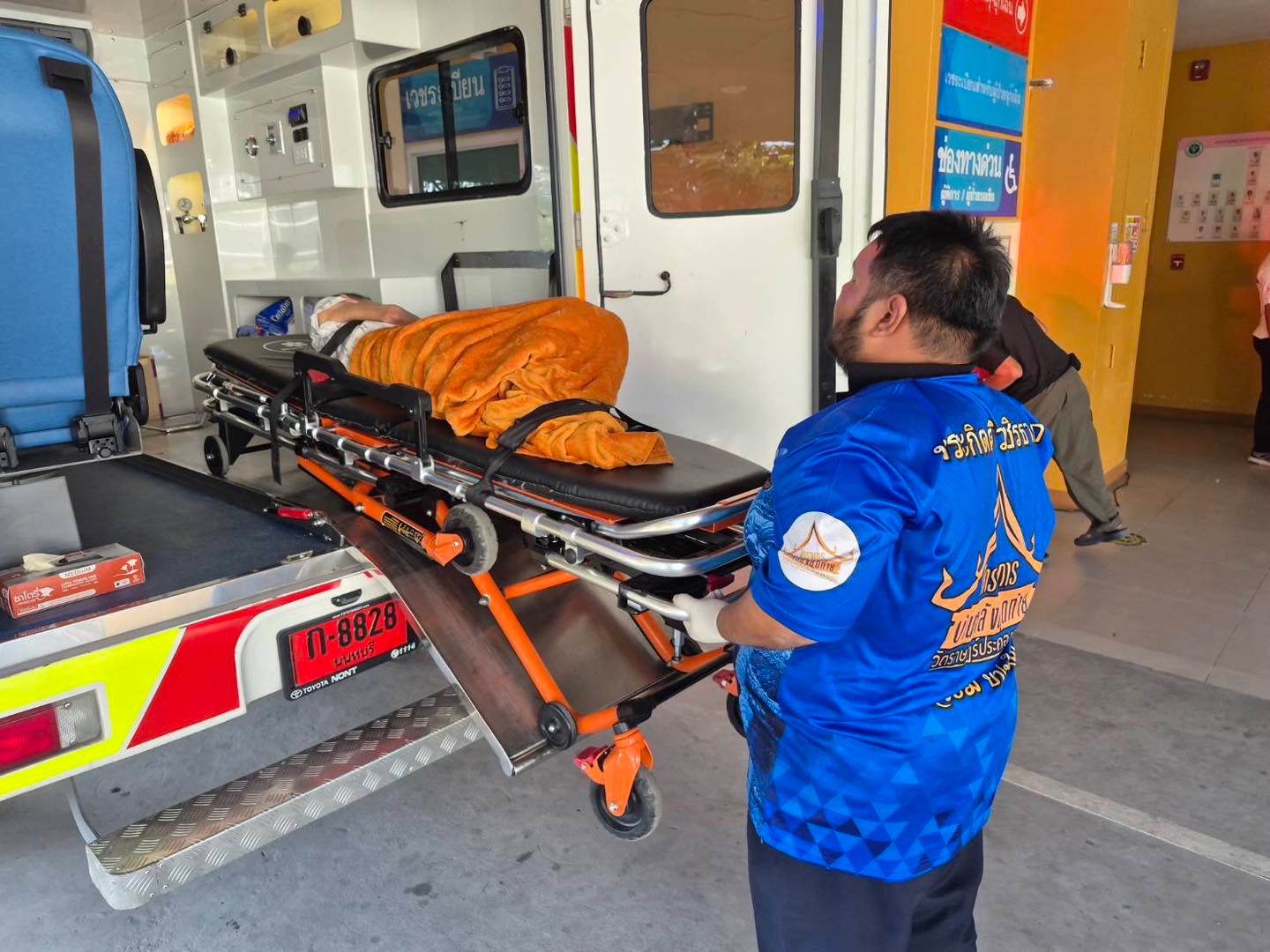- Asia
- Southeast Asia
Family travelled 500km with paperwork declaring her dead before temple staff heard knocking from inside coffin
Namita SinghTuesday 25 November 2025 05:03 GMTComments An emergency response team transports Chonthirat Sakulkoo to hospital after she was found alive in her coffin in Nonthaburi, Thailand (AP)
An emergency response team transports Chonthirat Sakulkoo to hospital after she was found alive in her coffin in Nonthaburi, Thailand (AP)
On The Ground newsletter: Get a weekly dispatch from our international correspondents
Get a weekly dispatch from our international correspondents
Get a weekly international news dispatch
 Email*SIGN UP
Email*SIGN UPI would like to be emailed about offers, events and updates from The Independent. Read our Privacy notice
A 65-year-old Thai woman was discovered alive in her coffin just as cremation rituals were about to begin at a temple in Nonthaburi on the outskirts of Bangkok.
Temple workers at Wat Rat Prakongtham, which livestreams cremations as part of its community services, were preparing the body on Sunday when they noticed movement.
The workers opened the coffin and found the woman breathing and lightly tapping on the wooden interior. The abbot immediately halted the proceedings, and ordered that she be taken to hospital.
The woman was identified as Chonthirat Sakulkoo. She had been bedridden for about two years and her health had steadily declined during that time, her brother, Mongkol Sakulkoo, said.
“I’ve cared for my sister for three years. Officials told us she had died,” he told The Bangkok Post. “All the documents had been issued, so we placed her in a coffin and brought her to the temple for cremation.”
Mr Mongkol said that he found his sister unresponsive at their home in Phitsanulok province last Saturday, leading relatives and village officials to believe she had died.
The village headman signed standard documentation for a coffin donation – a local practice allowing families to collect a coffin from charitable foundations.
However, these documents are not the same as an official death certificate, which Thai law requires before a hospital can accept a body for organ donation or for carrying out any formal procedures.
Honouring his sister’s wish to donate her organs, Mr Mongkol left his home at about 3am and drove roughly 500km to Bangkok, arriving at the Chulalongkorn University Hospital by late morning.
Since no doctor had certified her death, the hospital refused to accept the body and instructed him to obtain an autopsy report. Police at Yannawa station then directed him to another location to file a report, further delaying the process.
Concerned about decomposition – the body had not been injected with formalin, a preservative used in Thailand to slow decay before funeral – Mr Mongkol decided instead to take his sister to Wat Rat Prakongtham, which provides free cremation services.
According to the temple treasurer Pairat Sudthup, staff were explaining to the family that they also needed an official death certificate before cremation could proceed.
As they spoke, a faint knocking sound came from the coffin. “I was a bit surprised, so I asked them to open the coffin, and everyone was startled,” he told the Associated Press.
“I saw her opening her eyes slightly and knocking on the side of the coffin. She must have been knocking for quite some time.”
Temple staff used basic equipment to assess Ms Chonthirat’s vital signs before arranging emergency transport to the Bang Yai Hospital.
Doctors there confirmed she showed no signs of cardiac arrest or respiratory failure. Instead, she had suffered extreme hypoglycaemia, a critically low level of blood sugar that can cause deep unresponsiveness resembling death.
Her condition stabilised quickly after treatment.
By Sunday evening, staff told her family she was well enough to return home, although doctors ultimately decided she should remain under observation a little longer before travelling back to Phitsanulok.
The case has generated widespread public interest in Thailand, not only for its extraordinary nature but also because it highlights potential gaps in end-of-life procedures.
The family relied on local declarations of death and non-medical paperwork which were accepted as sufficient for transporting a presumed corpse, but not for formal hospital processes.
Mr Pairat, who has supervised thousands of cremations, said he had never witnessed anything like this.
This was the first time someone declared dead had regained consciousness, he was quoted as saying by the Thai Examiner.
Footage of the incident, filmed by temple staff, was posted on social media and verified by authorities.
Hospitals, police and temple officials have since confirmed the sequence of events, from the initial declaration of death to the hospital examination.
Ms Chonthirat remains in a stable condition as her family prepares for her return home.
More about
ThailandBangkokJoin our commenting forum
Join thought-provoking conversations, follow other Independent readers and see their replies
Comments
.JPG?width=1200&auto=webp&trim=153%2C0%2C13%2C0)


